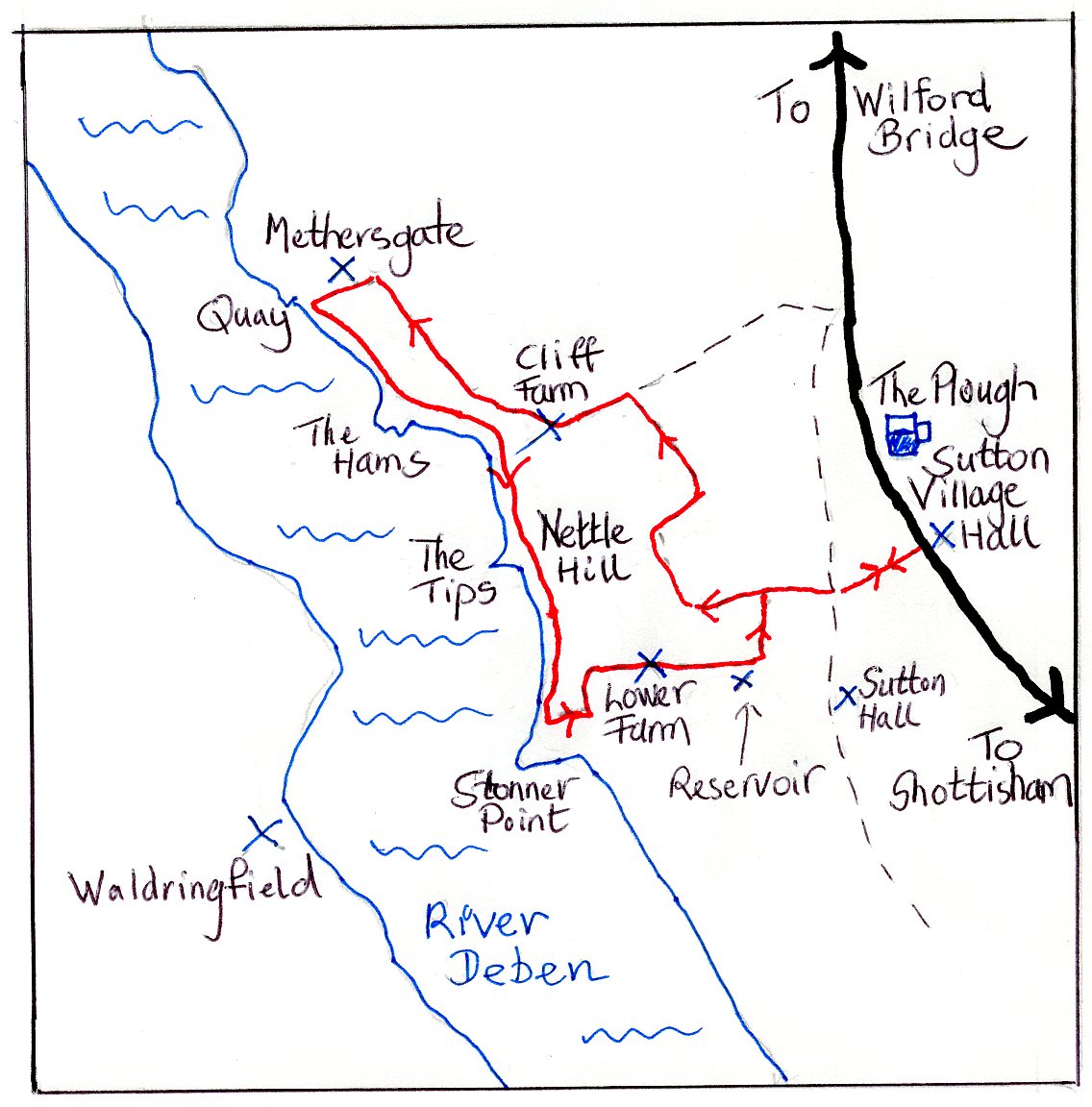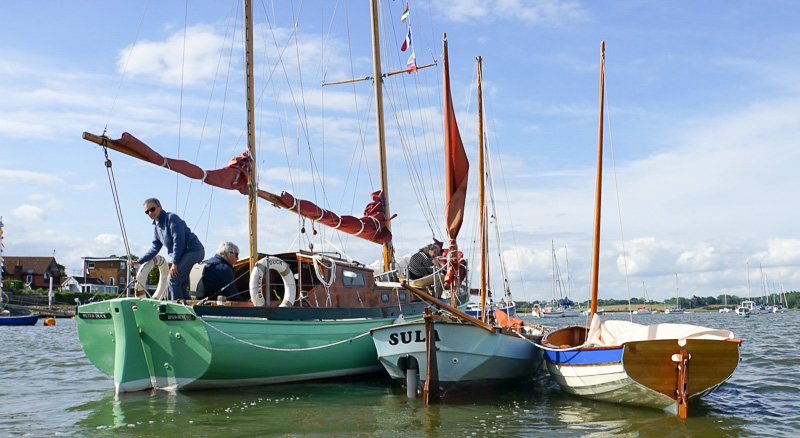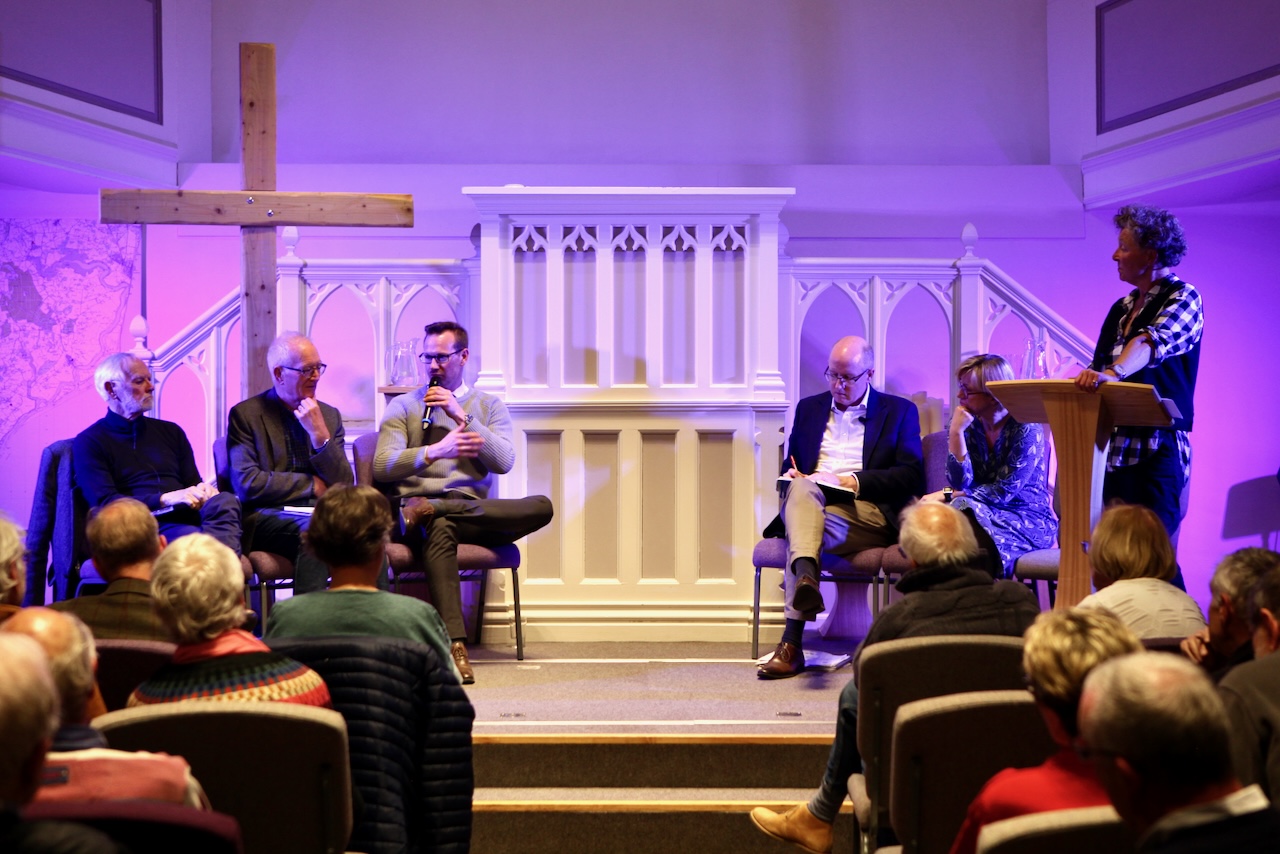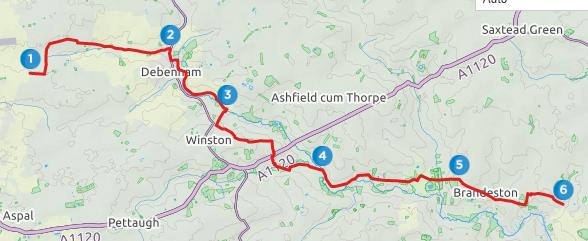By Peter Jones
Background to this article
In 2022 Julia Jones took photos of some plants growing on the beach on the Bawdsey Side of the river deben and asked members of the RDA to help with identification [Plants of the Deben – a plea for help – River Deben Association].

Bawdsey Beach, July 2022
One of the problems of doing so was because some of the photos were not very sharp. The usual reason for this if they were taken on a smartphone is not the quality of the camera but because smartphones are very light, have to be held away from the body in order to see the screen, are difficult to keep absolutely still, particularly if it is windy (which it usually is at the seaside), so move very slightly during the exposure (the problem varies slightly with the lighting conditions – exposures are longer in lower light conditions, so even very slight movement can cause slight blurring).
I therefore offered to try to obtain clearer photos using my DSLR camera which is heavier and held against the face in use. I did not make special visits to take photos and it happened that I was never there when the few and sparsely scattered grasses were in flower, so they have not, so far, been included. There are also some patches of lichen to be found here and there and I have neither expertise nor reference books to enable accurate identification of these (I suspect this is a group of organisms, like some larger fungi, where amateurs make quick confident identifications but experts are more guarded.).
Below are photographs of 14 species of dicotyledonous plants but there are certainly more, including a vetch (or perhaps two) photographed along with other plants but unidentifiable because they were not in flower and some other plants which were either before or after flowering at the times of my visits. To compile a comprehensive list would require systematic searching of the area on visits at reasonably close intervals over an entire growing season or more.
Editors note: Dicotyledonous plants are one of the two main groups of all flowering plants. They typically have two embryonic leaves either side on the seed head Continue reading →
 My sister Judy and I have been doing walks around the Suffolk coast and rivers for many years. We often remark how, if we do a route at a different time of year or the other way round, it can look so undiscovered. For this reason we are occasionally convinced that we’d never been that way before. Continue reading
My sister Judy and I have been doing walks around the Suffolk coast and rivers for many years. We often remark how, if we do a route at a different time of year or the other way round, it can look so undiscovered. For this reason we are occasionally convinced that we’d never been that way before. Continue reading 






